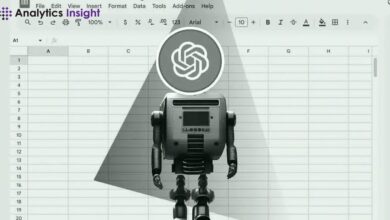NAVIGATING DATA ANALYTICS AROUND THE NEW NORM; TELETHERAPY- Tunde Ogundare

What is Teletherapy?
In recent times, there has been a tremendous rise in the rate of mental disorder in our society. According to the World Health Organization (W.H.O), 28% of people had depressive and anxiety disorders in 2019 compared to 2020, resulting from COVID- 19 pandemic. This figure is still on the rise. Due to the stigma surrounding it, patients experiencing such problems have been forced into isolation, leading to absolute deterioration of mental health. In order for patients experiencing such situations to have an easier, faster and cost- effective access to healthcare facilities with high efficiency, an innovative transformation called TELETHERAPY has been put into place, owing to technological advancement.
Teletherapy has become known as a technological transformation in mental health care. Teletherapy also known as Psychotherapy, e- therapy, or e- counseling is the provision of mental health services and support which can be through emails, text messages, online chats, video conferences, etc., over the internet. Although e- therapy has limitations, its importance is on the rise for a vast number of people.
Due to the nature of this therapy, a massive amount of complex data is generated daily, making it almost intimidating for healthcare facilities without proper data analytics and a management team to analyze data in order to aid informed data driven decisions. This situation calls for proper attention so as to avoid improper management of a patient’s health. This is where Data Analytics comes in!
What is the role of Data Analytics in Teletherapy?
Data Analytics is the collection, transformation, and organization of data in order to make conclusions, predictions, and enhance informed decision making. Data Analytics in Teletherapy involves the collection, transformation and organization of data on the mental health history of patients in order for mental health practitioners to draw conclusions, make predictions and inform decision making, thereby offering better services to patients and improving efficiency of the mental healthcare facility. The role of data analytics cannot be overemphasized, ranging from the patient’s behavior analysis to pharmaceuticals, and personalized treatment to reduced medical cost.
Data analytics helps health care practitioners view a bigger picture of the mental condition of the patient, thereby providing holistic and precise mental treatment for the patient. It also offers significant relief and incentives to healthcare organizations, governmental bodies and also Insurance companies. An instance is the governmental bodies analyzing population- level data to identify the statistics of mental disorder, allocate resources effectively, and implement adequate preventive measures.
How is Data Analytics applied in Teletherapy?
Data Analytics can be applied in various aspects of Teletherapy which increase efficiency for both patients and practitioners;
- Personalized Health Tracking: A major benefit of data analytics is the ability to personalize treatments according to the needs of each patient. Analyzing data collected during teletherapy sessions, self- reported symptoms and behavioral patterns, can help mental health practitioners gain valuable insights on the conditions influencing a patient’s mental health. Tracking the symptoms and predicting potential mental health risk for patients before it becomes chronic using advanced data analytics tools and methods will aid in offering faster and better services to patients, thereby maximizing the effectiveness of treatment.
- Predictive Analysis of Mental Disease and Prevention: Another major benefit of Data Analytics in e- therapy is the ability to predict mental disease at an early stage. Advanced tools such as Machine learning enables Mental Health Practitioners to analyze the voluminous records of patients in order to identify specific patterns and tendency for a serious mental disease in patients. Predictive analysis can also help Mental Health Practitioners identify patients that may be at a risk of experiencing relapse or deterioration in mental health. This helps Mental Health Practitioners in taking preventive measures in order to minimize the complications before it becomes too complex.
- Quality Assurance and Performance Indicators: Data analytics also helps in ensuring effectiveness and standard quality of teletherapy services. Tracking key performance indicators such as treatment outcomes, patient satisfaction, performance of Mental Health Practitioners will help teletherapy providers to identify areas for improvement and also implements strategies to enhance adequate service delivery. Data analytics helps providers on resource management and planning in order to effectively meet the needs of their patients. Analyzing data such as population, demand patterns will aid providers in managing resources, ensuring services are readily available and accessible to patients at appropriate time. Data analytics can also facilitate comparison with industry standards, making teletherapy providers maintain continuously and / or surpass these standards.
- Research Practices: Data analytics can be used to conduct research analysis on teletherapy and evaluate the efficiency of various treatment practices. Analyzing the outcome of these researches can aid Mental Health Practitioners generate valuable insights which can be used to make informed data driven decisions in Teletherapy.
- Fraudulent Activities: Apart from quality assurance and key performance checks, Data Analytics can also help teletherapy organizations detect fraudulent activities. Due to the nature of the healthcare system, it is highly prone to fraudulent activities such as improper or fake payment transactions, insurance claims, human errors, etc. Data analytics helps to track and identify potential patterns of fraudulent activities and device means of curbing them.
Conclusion
Conclusively, Data analytics holds a promising future in Teletherapy. It can aid efficiency in mental health treatment in patients, thereby reducing the high number of mental disorders around the world. Valuable insights gained from analyzing patients’ records can help Teletherapy health care organizations make informed decisions on the effective and standard quality care that meets the requirements of patients. While Data analytics is highly efficient in Teletherapy, the privacy and well- being of patients should be a paramount goal.



